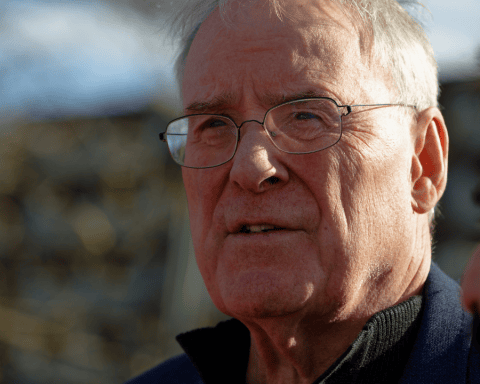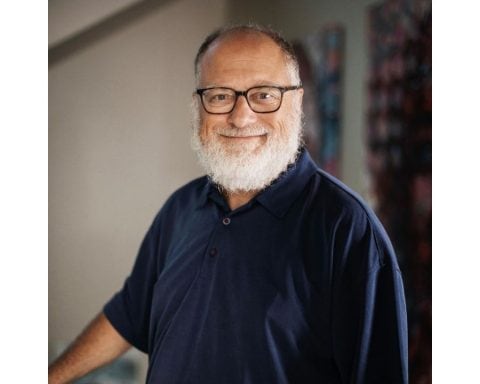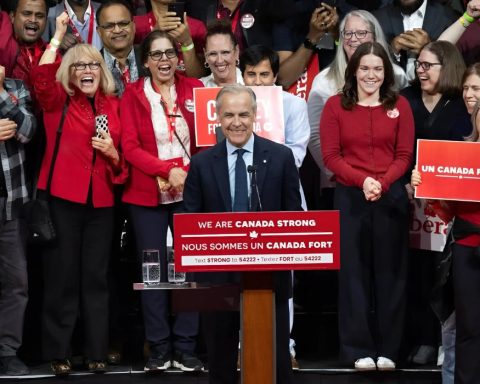Sometimes, we end up exactly where we are supposed to be.
Such was the case for Kathy Bardswick, a titan in Canadian insurance who is now spearheading sustainable finance reform in Canada.
As Bardswick was finishing up her MBA at McMaster University in the late 1970s, her mother – unbeknownst to her – applied for a job on her daughter’s behalf. It was an underwriting position with The Co-operators Group insurance company, based in Sault Ste. Marie, and not at all what Bardswick had in mind for a career launch.
Bardswick took the position and soon realized this was not just a job but a calling. As she made her way up the ranks in The Co-operators Group – a network of companies offering life, property and casualty insurance, as well as an investment management division, Addenda Capital – she grasped the changing relevance and mission of the insurance industry in an era of climate change. When she left The Co-operators after 38 years, 14 of which she served as president and CEO, Bardswick had left her mark, not only as a female executive but also a pioneer of sustainability in the insurance industry.
This legacy no doubt contributed to her 2021 appointment as the inaugural chair of Canada’s Sustainable Finance Action Council, as well as Corporate Knights' 2023 Lifetime Award of Distinction. She was presented with the lifetime distinction by Luke Gould, president and CEO of Mackenzie Investments, at the Corporate Knights' 2023 Corporate Citizens Gala last month sponsored by Mackenzie and Bullfrog Power.
Looking back, Bardswick realizes that it was extremely fortuitous – or perhaps astute on the part of her mother – that she landed in a co-operative. The Co-operators was founded by a group of Saskatchewan farmers in 1945: an institutionalization of solidarity and risk-sharing in the wake of the Depression and the Second World War.
“I really connected with the co-operative structure, with democratic ownership,” Bardswick says on the phone en route to the family cottage near Huntsville, Ontario. “There’s a fundamental, bone-deep understanding of quality of life, of integrity and engagement.”
When Bardswick was named president and CEO of The Co-operators in 2002, she also became chair of the International Cooperative and Mutual Insurance Federation, a British-based association of “values-led” insurers to which The Co-operators belongs. Through this international involvement, she became increasingly aware of the devastating impact climate change was having in places that had only fledgling insurance structures.
“They’d be trying to create some baseline security and then a weather event would happen and wipe them out entirely,” she says, referring to what she witnessed in the Philippines and Kenya, where hurricanes and droughts were becoming more frequent and intense, damage more extensive, and the capacity of entire communities eliminated by a single event.
The same was happening back home in Canada. Since the 1980s, claims payouts in this country from severe weather have doubled every five to 10 years. “The gap between what was insured and what was not insured was growing,” she says, adding that she felt a growing sense of accountability and guilt for the insurance industry’s impotence in the face of weather-related destruction. In 2015, under Bardswick’s leadership, The Co-operators became the first insurance company in Canada to offer comprehensive protection against overland flooding and storm surges and waves.
As these challenges deepened, it was increasingly clear to Bardswick that the insurance industry’s response to climate change had to be two-pronged: adaptation to the new reality and, at the same time, mitigation against warming. A penny dropped when she heard Swedish oncologist Karl-Henrik Robèrt address a conference she was attending in Singapore in the mid-2000s. Robèrt was describing what moved him, in 1989, to found The Natural Step, a non-governmental organization that promotes a whole-systems approach to sustainability: it was the awareness that, try as he might to cure childhood cancers, his efforts would be for naught if he failed to address the environmental factors causing the disease. The parallel with the insurance company’s role in the climate crisis was obvious.
Everyone wants to have big aspirational conversations, but if we don’t execute, what’s the point?
Bardswick resolved to have The Co-operators adopt The Natural Step framework – a process that involves “backcasting” from an aspirational end -state (the ideal sustainable insurer) and implementing the changes necessary to achieve it. Within five years, 60% of claims were paperless, and half of the audits were being conducted remotely, allowing the company to reduce its fleet of vehicles by 61%.
In 2021, Bardswick (who considers herself “retired”) was named chair of the Sustainable Finance Action Council, a joint initiative of the Ministries of Finance and Environment and Climate Change to mobilize capital toward achieving net-zero by 2050. She was rewarded by the swell of interest from the financial community: so many institutions wanted to join that she had to limit formal membership to 25. It’s a great problem to have, she says, recalling her fruitless efforts in the early 2000s to bring other insurance companies, investors and asset managers together to discuss how they could collectively work to combat climate change.
Last February, the council released a much-anticipated Taxonomy Roadmap Report. Aimed at creating greater clarity and consistency on green investments, the taxonomy proposes two categories: “green” for those with the least environmental impact and “transitional” for those that will aid in the shift away from fossil fuels. The hope is that by helping the investment community direct funds toward greener projects and technologies, the estimated $115-billion-per-year shortfall in investment needed for the country to meet its net-zero emissions goal by 2050 will be alleviated.
In the coming years, the Sustainable Finance Action Council will be making further recommendations in support of mandatory disclosure regimes and better use of existing climate-related government databases. Bardswick considers the progress made to date “significant” but is impatient to see more action.
“Everyone wants to have big aspirational conversations,” she says, “but if we don’t execute, what’s the point?”





